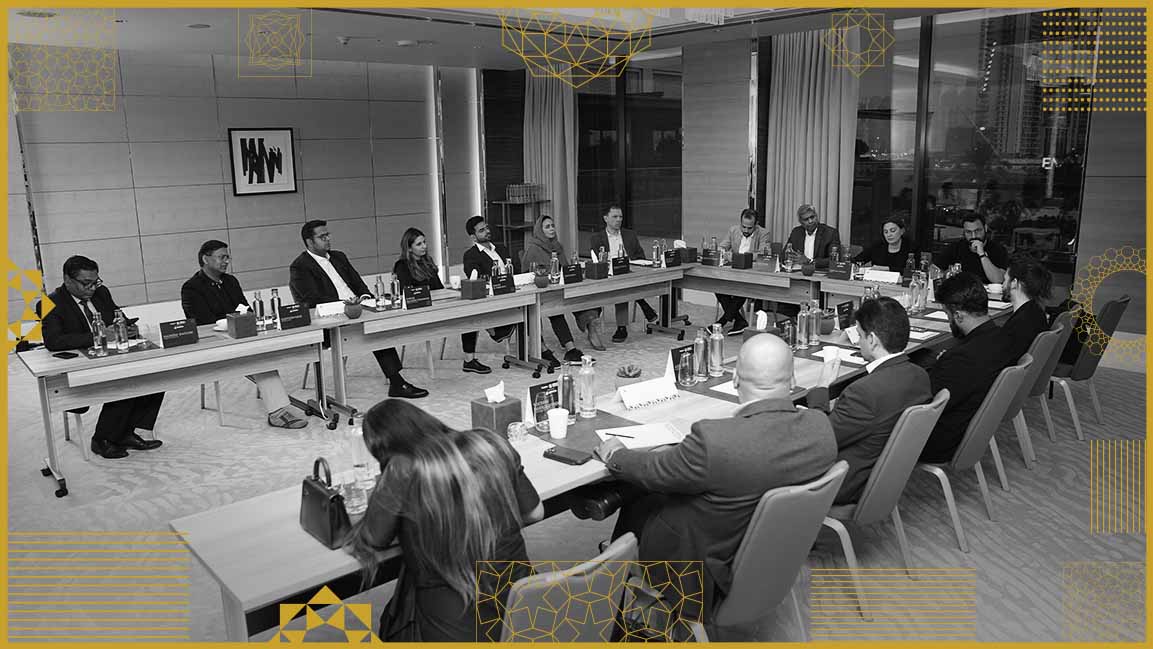- | 10:00 am
Future of digital commerce is balancing privacy, relevance, and profitability
Members of Impact Council Future of Digital Commerce subcommittee members discussed how digital commerce can drive personalization and profitability

The world of digital commerce is ever-evolving, with brands now focusing on providing personalized experiences. Advanced technologies like artificial intelligence (AI) and machine learning have made tailoring and customizing those experiences easier.
On June 11, Fast Company Middle East’s Impact Council Future of Digital Commerce subcommittee members deliberated on the challenges and opportunities of digital commerce and how to provide personalized and seamless experiences, leveraging the latest technologies. This subcommittee’s partner is Akinon, a cloud-based headless commerce platform focused on major retailers and consumer brands.
MAINTAINING PROFITABILITY
Today, customers interact with brands through various channels, such as mobile, web, and physical stores, and expect a seamless shopping experience regardless of the platform.
Discussing the challenges and how the brand’s success is anchored around its ability to handle this mesh of customer journeys, deliver seamless, personalized shopping experiences, and maintain profitability, Nurcan Arcan, Akinon’s CMO, said, “One of the focus points was how we can increase our revenues while decreasing costs to maintain our profitability.”
The answer is unified commerce, bringing all critical data into a centralized platform. “Unified commerce is where we integrate all our channels, being online, offline, mobile, owned marketplaces, third-party marketplaces, and so on,” Arcan added.
Digital commerce is one of the most dynamic and demanding sectors — some of the many challenges include customer experience and loyalty, data privacy and integrity, and keeping up with a changing market.
For most, skyrocketing online sales have been accompanied by rising costs. The discussion identified some common trends that can point organizations to profitability.
“We shared valuable insights on how to personalize data, some insights for different markets, how to do testing, how to go into the customer persona, and the exposure,” said Yavar Khan, E-Commerce Business Director at Al Ghurair Group.
Ghada Al Talal, Chief Strategy Officer of Tamimi Markets, underscored the significance of balancing innovation and customer-centricity and how it adds to the company’s profitability.
Vikram Manjeshwar, CEO of Ghassan Aboud Group, described the process as a “balancing act of privacy, relevance, and profitability.”
“The differing perspectives today of pure e-commerce players versus omnichannel providers was an interesting aspect of how different operators in the market perceive this push for profitability and customer relevance,” added Manjeshwar.
Ahmad Yousry, CEO and co-founder of Rabbit, said, “We discussed a lot about privacy, data as an infrastructure, the balance between customization and personalization, and how we can bring back the joy into the shopping experience, specifically the digital one.”
LEVERAGING AI
AI has been adopted in many sectors to ease operational tasks and speed up processes. The technology has also helped with analytics and decision-making. The members discussed the need to leverage and utilize AI for contextualization.
Kareem Al Saady, Regional Director, Retail Media Quick Commerce at Talabat, said, “One of the topics we covered today, which is super important, is the use of AI to apply a lot of context to customer personalization, to enhance the experience in terms of letting them find what they want in a much easier way, in a much more contextually accurate way.”
Mohamad Kaswani, VP of new projects at Property Finder, said there’s a consensus among technology leaders about putting customer centricity front and center before considering leveraging on AI, personalization, and digital transformation.
Emphasizing the importance of data in analyzing customer behavior for personalized experiences, Asif Sabir, Chief Technology Officer of GoBazaar, said: “If you get clean data and if you’ve got that properly organized and structured, then you can do multiple things with it in terms of providing insights, providing personalization and adding those AI solutions as well.”
Bharathi Masilamani, Group SVP of Technology at Axiom Telecom, said that the discussion brought the idea of unified commerce to his attention, defining it as omnichannel combined with AI. “Maybe that’s the way to go for enhancing digital commerce.”
In digital commerce, banks primarily engage with fintech companies to support them with new technologies and security measures. Santosh Nair, Senior Vice President, Innovation and Digital Transformation at Mashreq Bank, said, “Coming from a conventional bank, I am keenly interested in learning from other fintech operators as to how they can enable success and digitization in conventional banks.”
The Impact Council leaders meet multiple times yearly to address the most significant opportunities and pressing challenges. These gatherings provide a platform for networking and collaborative idea generation, fostering connections among some of the most brilliant minds in the industry.







































